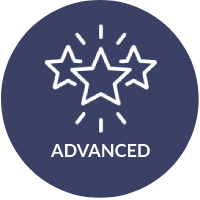Back
Solutions Circle
Biopharmaceuticals (includes Biologics and Drugs)
Solutions Circle: Biosimilar Regulations in Middle East - Challenges and Proposed Solutions
Wednesday, October 4, 2023
10:45 AM – 11:15 AM EDT
Location/Room: Exhibit Hall: Solutions Circles

Guriqbal Singh
Director
Regweb Consulting Services Inc., Canada
Facilitator(s)
Description: A biosimilar is a biologic drug that is highly like a biologic drug that has already been authorized for sale. Regulations for biosimilars vary across the Middle East region. The Gulf Cooperation Council (GCC) countries such as the United Arab Emirates, Saudi Arabia, and Qatar have established regulations for biosimilars, while in countries like Jordan and Lebanon, the regulatory frameworks are still in development.
In general, biosimilars in the Middle East are subject to rigorous testing and clinical trials to ensure their safety, efficacy, and quality, before they can be approved for marketing and sale. The approval process is typically overseen by regulatory agencies such as the Ministry of Health or the National Regulatory Authority.
This session will discuss the challenges faced during approval process of biosimilars in the Middle East including regulatory differences, clinical data requirements, intellectual property concerns, limited local clinical experience and reimbursement and pricing. The session will also discuss the strategies and initiatives to overcome these challenges to promote the development and use of biosimilars in the region.
In general, biosimilars in the Middle East are subject to rigorous testing and clinical trials to ensure their safety, efficacy, and quality, before they can be approved for marketing and sale. The approval process is typically overseen by regulatory agencies such as the Ministry of Health or the National Regulatory Authority.
This session will discuss the challenges faced during approval process of biosimilars in the Middle East including regulatory differences, clinical data requirements, intellectual property concerns, limited local clinical experience and reimbursement and pricing. The session will also discuss the strategies and initiatives to overcome these challenges to promote the development and use of biosimilars in the region.
Learning Objectives:
- Upon completion, the participants will be able to construct a robust regulatory strategies to register biosimilars in the Middle East region.
- Upon completion, the participants will be able to identify the potential challenges and the solutions to overcome these challenges during submission of biosimilar applications in the Middle East region.
- Upon completion, the participants will be able to recognize the differences in the biosimilar regulations across the Middle East region.

